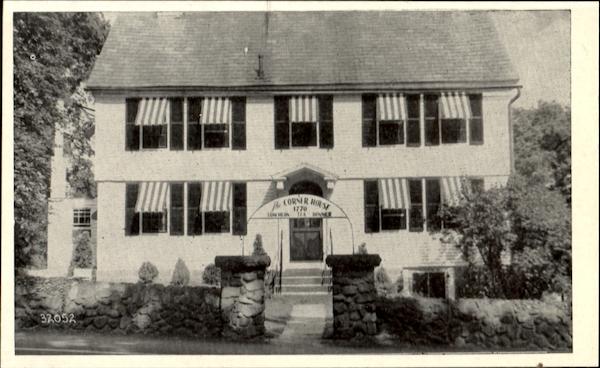|
The History of The Corner House. Built on historic ground, Corner House still undoubtedly retains part of the original house which was given in 1646, by Thomas Welles, later a colonial governor of Connecticut, as a wedding present to his daughter, Anne "in consideration of a marriage lately held, betrothed and solemnized with Thomas Thomson." The deed, giving the town as Tunxis Sepus (which had been the Indian name for the Farmington River and early plantation settlement), was not recorded by Joseph Hawley, grandson of Thomas Thomson, until January 23, 1713-4. There is every indication that the ell at the rear of the house is part of the earliest house which stood here. The present front of the house was built 1783 by Daniel Curtis and his son Eleazer as appears in a deed which reads they "mutually agree to build a house and have large provision for same." The house was built by Captain Judah Woodruff, a native architect and master builder of Farmington, who built the present Congregational Church and about twenty other houses on Farmington main streets. In 1974 Daniel Curtis and his son Eleazer sold the house to major William Judd and his son William Samuel Judd. Major Judd has been one of the foremost patriots during the War of the Revolution, being chairman of the Committee of Correspondence and also chairman of the powerful Committee of Inspection. In 1787, he was a delegate to the convention which organized the Grand Lodge of the Free and Accepted Order of Masons when their charter was granted by the Grand Lodge of Massachusetts, and was made chairman of the convention, afterward being prominent in both the Grand Lodge and in Frederick Lodge, No. 14 in Farmington. In 1804 Major Judd was chairman of the State constitutional convention and which resulted in "pamphlet war." the same year he participated in the anti-Federalist party convention which was later defeated. Major Judd died in 1804 in this house. |



